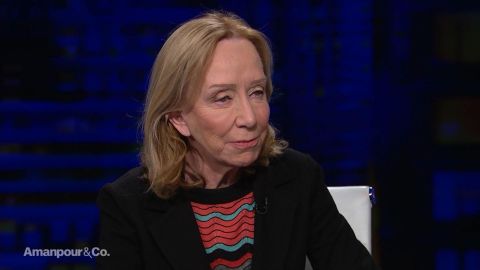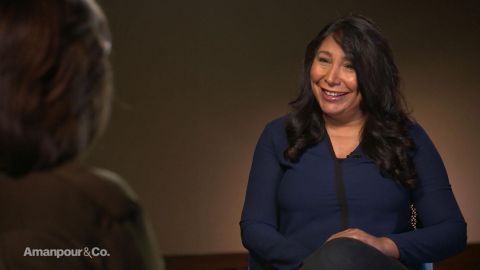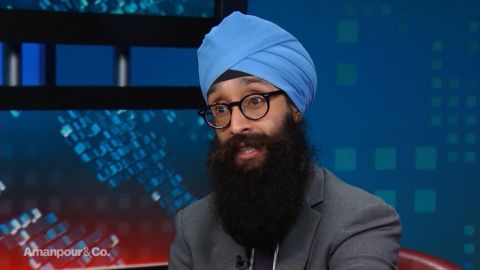Read Transcript EXPAND
CHRISTIANE AMANPOUR: As a female director, or as a director, as a film director in a country that didn’t have any films or cinemas, how were you able to shoot the scenes? I mean outside? How did you manage to get it done?
HAIFAA AL-MANSOUR, SAUDI ARABIAN FILM DIRECTOR: Well, yes, we have TV. We have a little bit of TV. So, we had some kind of infrastructure. We had to bring a lot of like the head of the departments from Germany, it was a German-Saudi co-production. But as shooting in the streets for a woman is a little problematic at the time. It’s changed a lot now. But it is segregated — it was a segregated country to a high degree. So, I wasn’t able to go in the streets and be with the crew and I had to be in a van and —
AMANPOUR: So, you had to roll it, cut, action —
AL-MANSOUR: Yes.
AMANPOUR: — all of that from walkie-talkies?
AL-MANSOUR: From walkie-talkies and a monitor. Which is frustrating for me. As a director, I wanted to be with them and like be where the actors and all. But I think the situation change a lot and I’m going back to Saudi to shoot a film called “The Perfect Candidate.”
AMANPOUR: That’s really interesting because from what I read about it, it’s another sort of ground-breaking element of Saudi culture where women can, I believe, run for very local offices. Is that correct?
AL-MANSOUR: Yes.
AMANPOUR: They’re allowed to now.
AL-MANSOUR: Yes, they are.
AMANPOUR: And why do you want to do that film?
AL-MANSOUR: I felt it is important to encourage women to take positions in public. And I think I — a lot of women in Saudi Arabia and in the Middle East in general are very shy to be under the spotlight. Because we are taught since we are little it’s better to stay at home and the role of a woman is to be like a mother and that is the ultimate kind of like whatever position in life. And I felt like it is important to change that message a little bit and encourage women to take more — to be a little more out there and put themselves out there. It is hard to put yourself and go and explain your point to — view to the world. But I think it is important as we move on and progress as a culture. So, but I don’t expect to be in the van.
AMANPOUR: You expect to be outside, on the street, directing like any self-respecting film director.
About This Episode EXPAND
Christiane Amanpour interviews Doris Kearns Goodwin, U.S. Presidential Historian and Pulitzer Prize-winning author whose most recent book is “Leadership: Lessons from the Presidents for Turbulent Times;” and Haifaa al-Mansour, director of “Nappily Ever After.” Hari Sreenivasan interviews Prabhjot Singh, Director, Arnhold Global Health Institute and author of “Dying and Living in the Neighborhood.”
LEARN MORE


